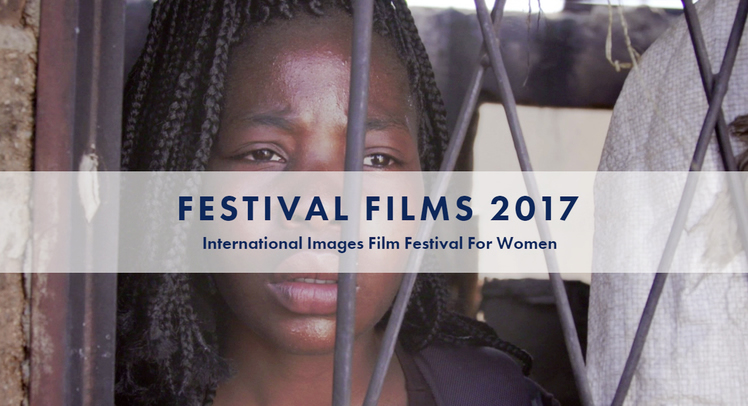
The Sunday Mail

Fatima Bulla
THE local film industry remains a difficult sector to penetrate for productions tackling societal issues with religion lenses as the line up on the International Images Film Festival and the Zimbabwe International Film Festival reveal few artistes making a statement in that regard.
Across the globe, religion continues to affect the socio, political and economic being of masses yet inspite of that critical role, it seems not many film makers are inspired to delve into that domain.
If the line-up on the IIFF and ZIFF which took off yesterday is anything to go by, the portrayal of religion’s influence in people’s lives is minimal revealing a possible area of untold stories.
With more than 60 films to be showcased during the annual seven day film fiesta, less than five films tackle the influence of religion in the communities and people’s livelihoods.
And those that seem to make it on the line-up portray the negative impact religion has had on communities. Of note is a short film by Zambia’s Emmanuel Mwape entitled “Sex”, which explores the story of a priest who uses religion to pray his lust away. According to the abstract, the film is aimed at reflecting and telling untold stories.
Though written by an Indian, Lipika Singh Darai, another production titled “Some Stories Around Witches” seem to resonate closer to home as it “depicts the humanitarian crisis surrounding instances of witch-hunting”, taking audiences “closer to the people who have been accused, ostracised and tortured for being witches”.
Religion lenses are also used in “Mizizi” (Roots), a film by Biko Nyongesa from Kenya. The film’s abstract highlights a story of a young man who is struggling to determine his sexual orientation under the banner of a family with strong Christian values and strong negative influence from his friends.
Save from these films most factor in issues of cultural practices and African identity without a clear reference to religion. IIFF director Rudo Chakanyuka said religion features more in the films as a tool being used to manipulate cultural practices.
“I think the angle that comes is when religion and culture are put together highlighting issues of abuse of women like in practices such as Female Genital Mutilation.
“Most films with a religion background you find are from the Middle East where there is a strong religion influence and is used as a tool to oppress women.
“Also from East and West Africa both aspects are focused more on culture, with story lines where religion is used as a tool to also manipulate cultural practices like child marriages,” she said.
“Femi-centric”
She highlighted that IIFF which is running under the theme “Of Women, By Women, for the people”, is focusing on educating audiences more on women issues than any other aspects.
“IIFF is about women’s stories and issues. We look for femi-centric, female protagonist films, trying to educate the society, empower lives and teach about women’s rights. There are more problems than things to be celebrated about women,” Chakanyuka said.
Angeline Dimingo, whose Christian themed film titled “Marrying the Devil” which could only make it on festivals beyond the borders, said films portrayed from a religious perspective face a challenge in penetrating the industry due to barriers in beliefs.
“Penetrating the industry is complicated because beliefs differ. You might try to appeal to an audience with a Christian film but they have differing beliefs.
“But there are so many untold stories in religion especially areas to do with spirituality, though they present a complication in showing them visually.
“Resources permitting a lot has to be told. So when you talk of religion it needs lots of research, understanding the religion, and discerning, spirituality. I have to make in-depth consultation on the religion I am not part of when I make such a film,” she said.
While religion seem to be a tool dividing groups of people, Dimingo said religion-themed films can play a major role in creating dialogue.
With experience spanning over 20 years in the film industry Dimingo said technology now play a critical role in pursuing production of religion-themed films which might require graphics to clearly bring out the storyline.
NGOs
“At this time and age when people are using media to preach sermons, this is a time film can be powerful to be sending out messages. It’s to do with technique but it all goes back to resources,” she explained.
ZIFF executive director Nigel Munyati said not more than one film came to his mind that was produced with a religion lense in the past five years. “You cannot prescribe what to writer to an artiste. We promote artistic freedom,” Munyati said.
Renowned award-winning film director Joe Njagu said such films were normally pursued more by institutions like non-governmental organisations which had budgets set aside and intended to push a certain agenda.
“Such kind of films are normally put together when there is an NGO which intends to conscientise people about a particular issue, for instance the film ‘Neria’ was meant to conscientise people about inheritance issues because USAID wanted to push that agenda,” Njagu explained.
While there maybe an impression religion-themed movies struggle for a market locally, around the globe there are among the highest grossing in the industry.
Directed by Mel Gibson and starring Jim Caviezel as Jesus Christ, “The Passion of Christ” is one of the best selling films having raked in US$611 899 420.
Also ranked among the top selling films according to FoxNews is “Hacksaw Ridge” (US$175 302 354), “Heaven is for Real” ($US101 332 962), “War Room “(US$67 790 117), “The Nativity Story” (US$46 432 264) among a host of others.



